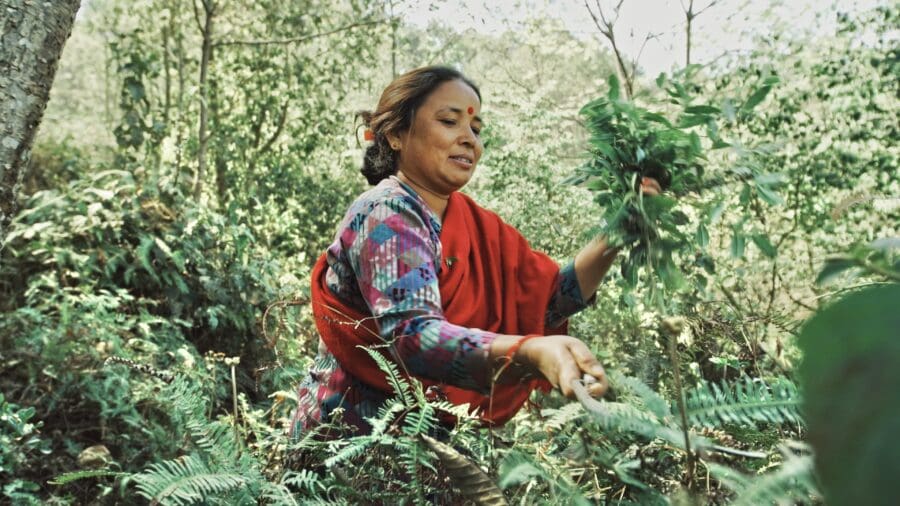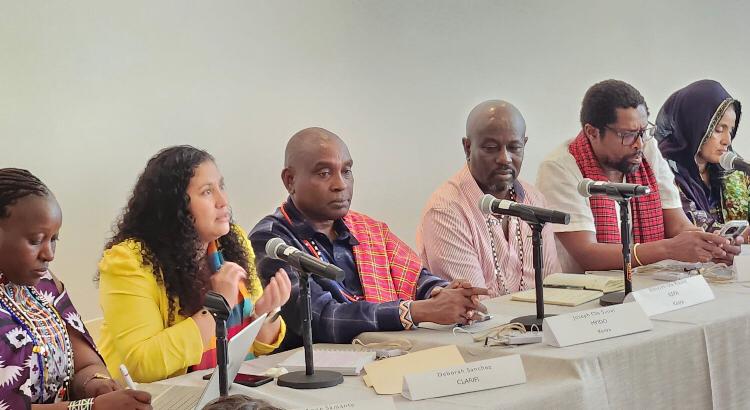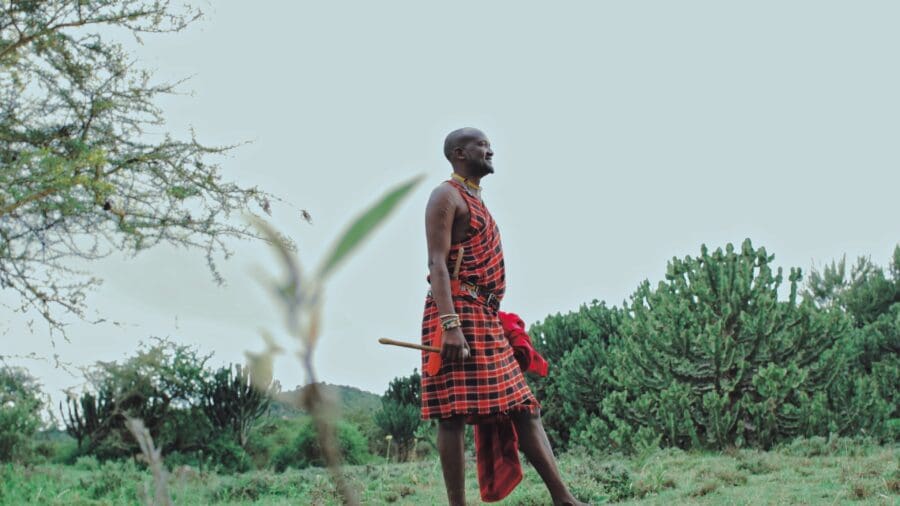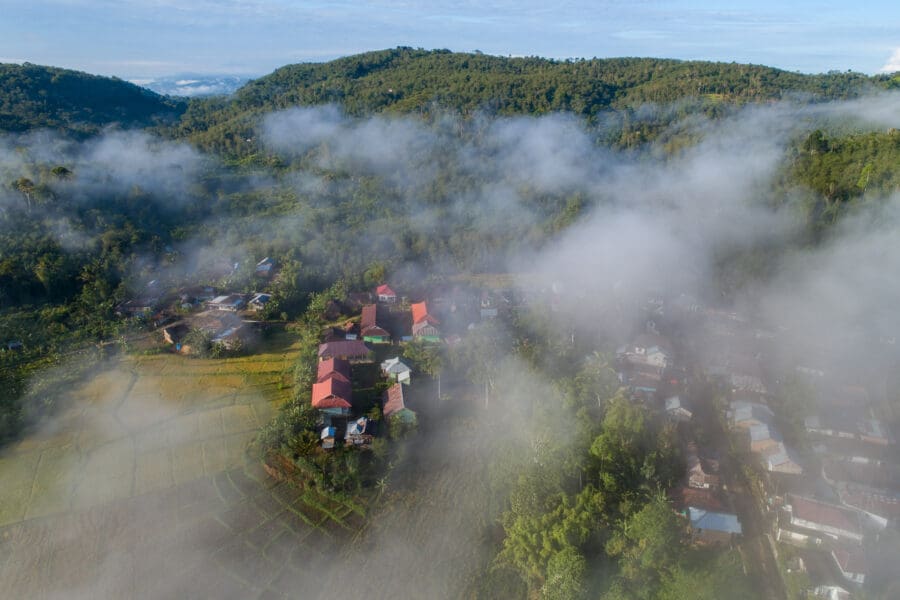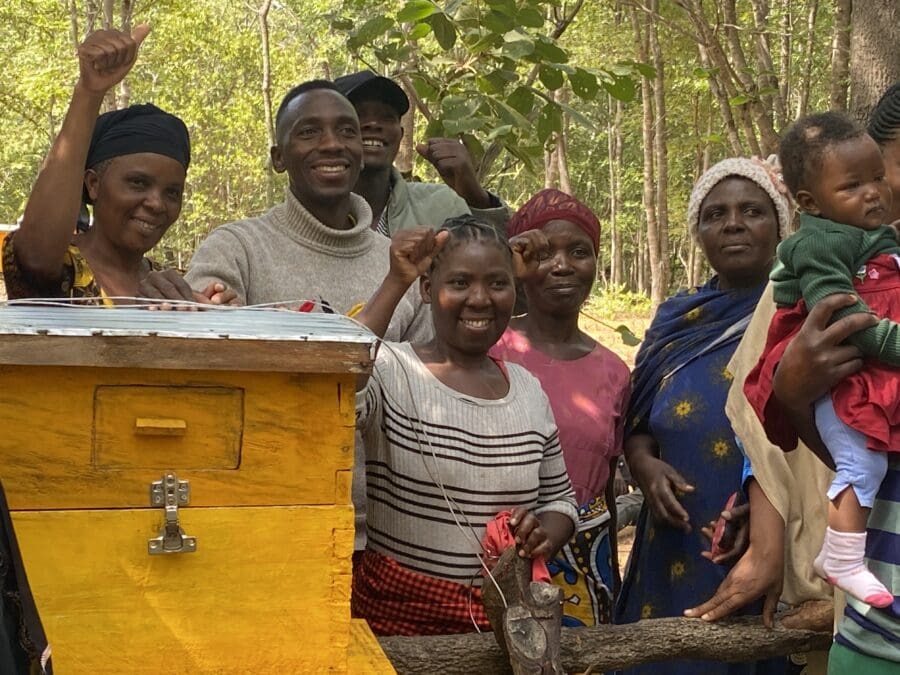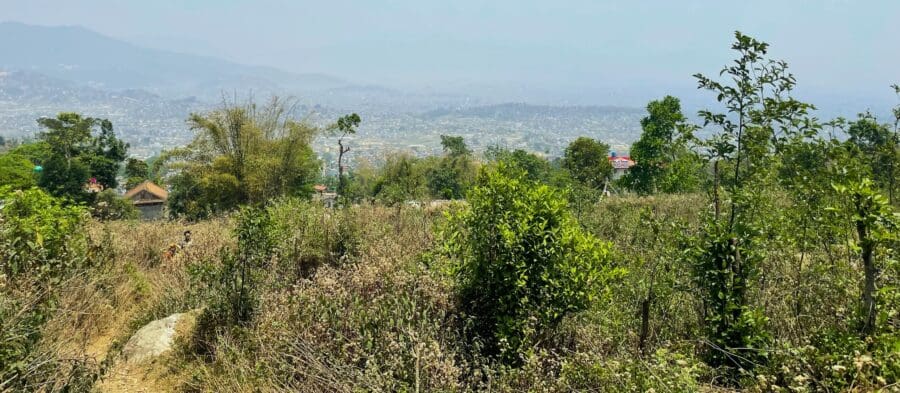At COP30, RRI announced the next phase of its global coalition strategy, "From Rights to Livelihoods: Advancing Collective Economies for People and Planet," with the launch of a new Collective Livelihoods and Enterprise Network. The initiative represents a major step in linking land rights, sustainable livelihoods, and conservation through community-led economies.
For two decades, RRI and its partners have contributed to efforts that have led to the recognition of at least 140 million hectares of forests for Indigenous, local, and Afro-descendant communities across Africa, Asia, and Latin America. Now, the coalition is turning its focus toward the next frontier of ensuring that these lands sustain thriving, self-determined local economies that reinforce both rights and conservation. This next phase builds on decades of collective progress to secure rights and now aims to ensure those rights deliver economic resilience and conservation gains for generations to come.
“This new global initiative marks a pivotal moment in the movement for land and resource rights. The Collective Livelihoods and Enterprise Network will bring together rightsholders, partners, and allies worldwide to align evidence, finance, and policy toward one shared goal: a future where secure rights, thriving local economies, and healthy ecosystems reinforce one another as the foundation for global sustainability,” said Bryson Ogden, RRI’s Director of Rights and Livelihoods.
Across the tropics, Indigenous Peoples, Afro-descendant Peoples, and local communities manage over one-third of the world’s remaining intact forests and are the frontline stewards of biodiversity and carbon stores. Research shows that forests managed by communities experience 2–3 times lower deforestation rates than those under state control. Yet sustaining these conservation outcomes depends on secure rights and viable livelihoods. The Collective Livelihoods and Enterprise Network responds to this need by connecting proven local enterprises with the enabling finance, policy, and market conditions needed to thrive.
Below are on-the-record quotes from partners and rightsholder leaders supporting the launch of RRI’s Collective Livelihoods and Enterprise Network. These statements may be used with attribution.
“An economically empowered woman is a politically empowered woman.” — Judith Reymundo, Association of Asháninka Women Entrepreneurs Iroperanto Koya (AMEIAK), Peru
“Nepal has long been a pioneer in community forestry, conservation, and sustainable development. At the local level, Green Foundation Nepal has been working to improve local livelihoods and scale up community-led economies. The launch of this new network is critical for strengthening these initiatives and learning from other communities in Africa and Latin America.”— Ghan Shyam Pandey, Green Foundation Nepal
“This is a project that starts from a fundamental principle: listening. RRI’s sensitive approach, reflected in this proposal, reveals that development plans, especially in Brazil, are still reflections of colonial processes and racism—but it also shows that the resistance of the people smolders every sunrise, fighting for the right to exist, for the right to live.” — Cristiane Julião Pankararu, National Articulation of Indigenous Women Warriors of Ancestry (ANMIGA), Brazil
“Our lands are inseparable from our cultural and spiritual heritages, and they equally remain the very lifeline of our Indigenous livelihoods production system: pastoralism, hunter-gathering, rotational agriculture, subsistence fishing, and more. We must move away from misplaced notions and practices that devalue and delink our rights to land from our rights to decent livelihoods and instead support Indigenous economies based on our self-determination as articulated in UNDRIP.” — Kimaren Ole Riamit, Indigenous Livelihoods Enhancement Partners (ILEPA), Kenya
About the Rights and Resources Initiative (RRI)
The Rights and Resources Initiative is a global coalition of over 200 organizations dedicated to advancing the land, forest, and resource rights of Indigenous Peoples, Afro-descendant Peoples, and local communities. Through evidence-based advocacy, coalition building, and innovative funding mechanisms such as CLARIFI (Community Land Rights and Conservation Finance Initiative), RRI works to ensure that communities have the legal and financial power to lead climate and conservation solutions.
Interested in receiving notifications about new blog posts? Subscribe to The Land Writes Blog now to get new posts delivered right to your inbox.

